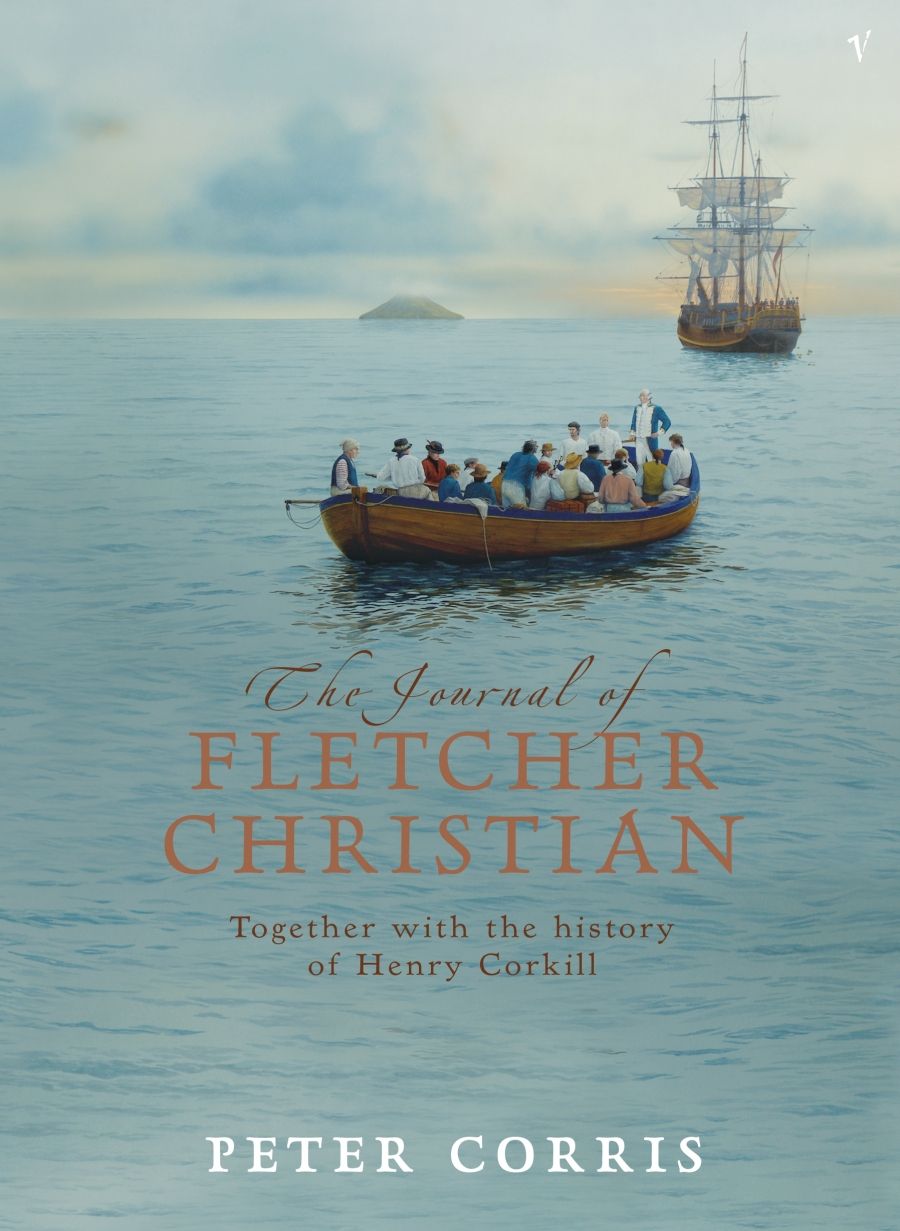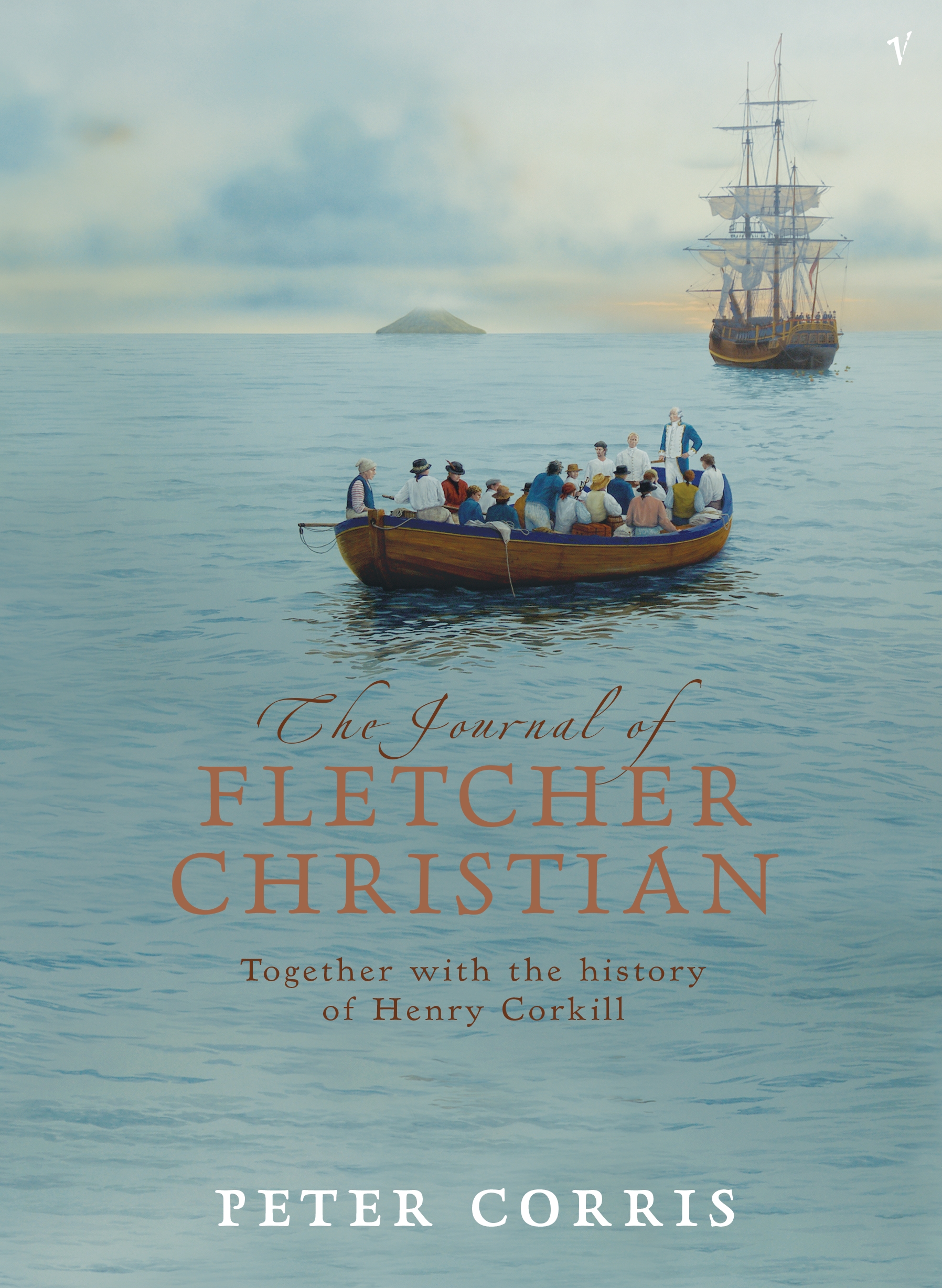
- Free Article: No
- Contents Category: Fiction
- Review Article: Yes
- Article Title: Strange history
- Online Only: No
- Custom Highlight Text:
Of all places on earth, Pitcairn Island must surely have the strangest history. Everyone knows about the mutiny on the Bounty in 1789 (not a bad year for uprisings) and about the settlement founded by the mutineers and their Tahitian consorts on this remote Pacific island. Now Peter Corris has created a fiction based on a distant family connection between Fletcher Christian and Corris himself, through his Manx ancestry.
- Book 1 Title: The Journal of Fletcher Christian
- Book 1 Subtitle: Together with the history of Henry Corkhill
- Book 1 Biblio: Vintage, $32.95 pb, 283 pp
- Book 1 Cover Small (400 x 600):

- Book 1 Cover (800 x 1200):

Perhaps unwilling to deceive gullible readers for too long, Corris fails to sustain the fiction in ‘The History of Henry Corkhill, Sailor’. No one with a passing knowledge of early nineteenth-century English, with its unmistakable rhythm, could be fooled by the plodding, olde-worlde prose he gives Corkhill. Corris, also, is too careful in excusing Corkhill’s occupation: ‘I anticipate that in time to come there will be those crying out against the cruelty of the sealing trade. Indeed, given the rate at which we sealers killed them such protest may be unnecessary for they may have vanished from the earth altogether. I understand such feelings but confess that I did not share them then or now.’ This is unusually defensive for a sailor writing in 1808: it is the voice of the twenty-first century.
‘The History of Henry Corkhill’ is fabricated to explain some of the puzzles in Fletcher Christian’s story. Assuming from the name that this American sailor, born in 1775, may have also had Manx ancestry and been related to Christian, Corris sends Corkhill on a journey to the South Seas, where he visits Pitcairn Island. The only Bounty survivor among the inhabitants notices his strong resemblance to Christian, many years dead, and hands over Christian’s journal. Corkhill’s subsequent trip to England explains the reported sightings of Christian that contributed to his enigma.
With ‘The Journal of Fletcher Christian, Gentleman’, Corris can leave behind stylistic concerns: he has carefully explained in his introduction that ‘Dr Macconochie [in his translation] has opted for some more modern usages than Christian employed in the interest of intelligibility’. Corris thus releases himself from the need to attempt historical ventriloquism, and the writing improves dramatically. He is free to relate Christian’s story – in the first person – unselfconsciously and directly.
Corris’s Christian is passionate and subject to extreme mood swings. He is an atheist, but clean-living, peaceable and faithful to his Tahitian wife. The mutiny was inevitable, and he never expresses any regrets. His stated aim is ‘not to acquit myself of mutiny, of which I am surely guilty, nor to justify my actions, but to explain how it all came about’. As he prepares himself for action, he feels ‘a surge of energy through my body as I resolved to take the fine ship from a man who was unfit to command her’. There is nothing apologetic about Christian.
Corris’s Bligh – seen, of course, through Christian’s eyes – is a good commander gone bad. On earlier voyages, he ‘held sway throughout in the proper manner, never abusing his authority nor going beyond the acceptable language of command and reprimand’, even though ‘I found him a difficult man … our natures did not fuse, but I believe there was mutual respect between us’. The ill-fated Bounty voyage is well documented in other sources, but Corris allows Christian to discover the dark secret that explains Bligh’s deterioration, his violent, abusive moods, ghastly pallor and shaking hands.
Corris stays with the facts ‘as far as they can be determined’, fleshing out his narrative with plausible inventions. The Corkhill section is little more than putty to fill in a few obstinate cracks, and the introduction, though clever, is just narrative business to explain Corris’s possession of the journal. The novel’s interest lies in the characters of Christian and Bligh, and the violent story of shifting loyalties that resulted in that odd settlement on Pitcairn Island – estimated population, in 1992, fifty-two.


Comments powered by CComment